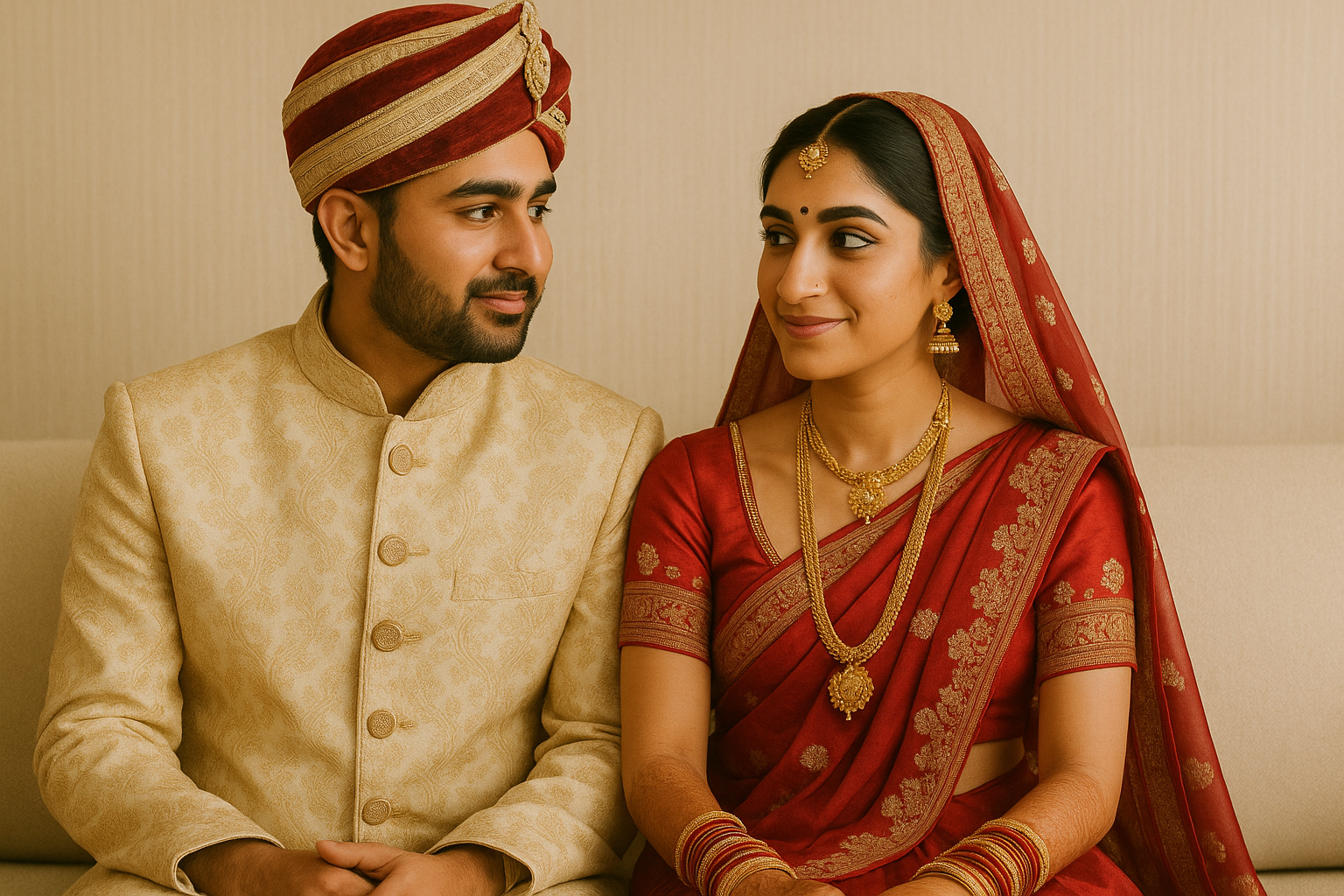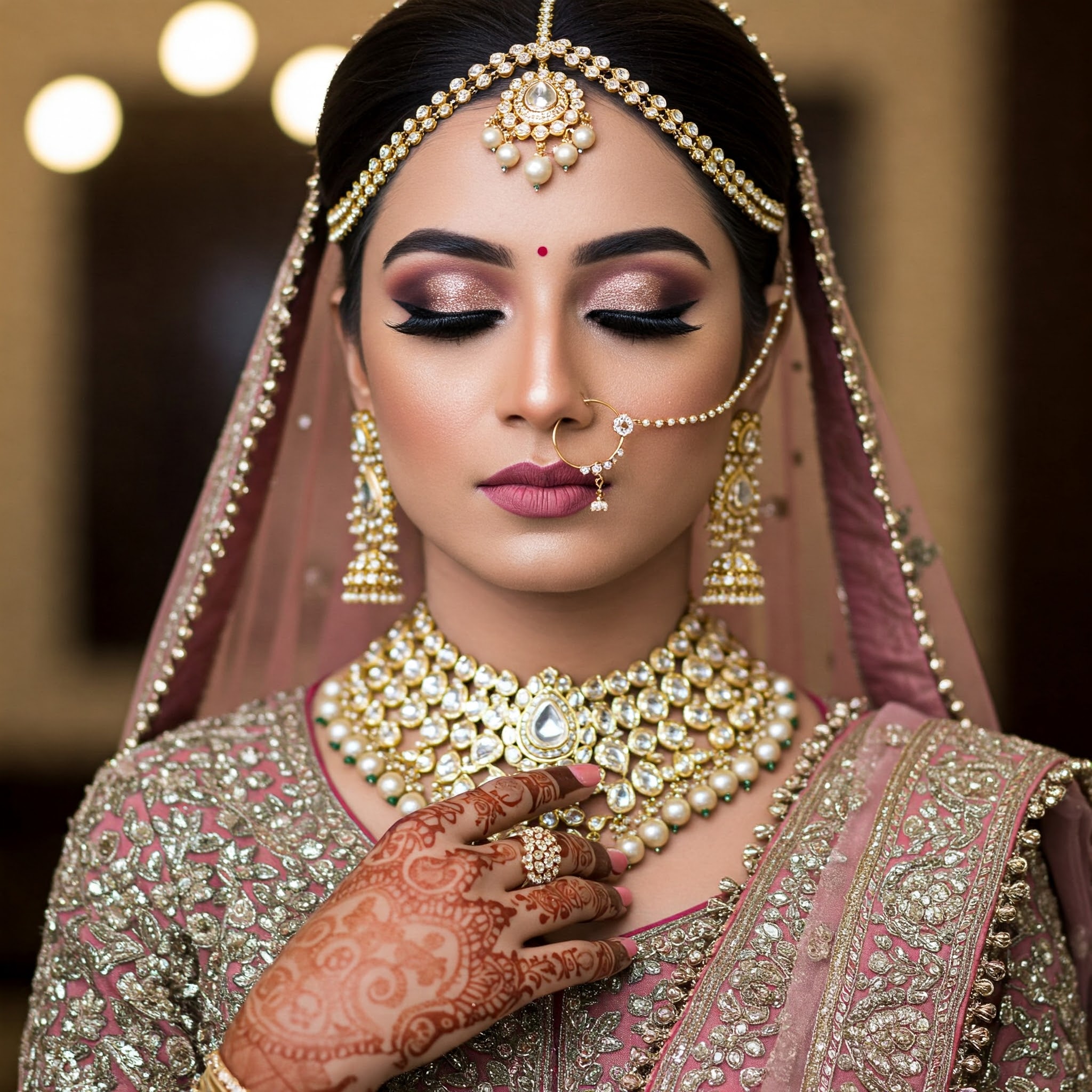
How Shared Values Beat Shared Interests in Hindu Matchmaking
02-Jun-2025 DigiShaadi
In the age of swipe-right culture and algorithmic dating, it’s easy to get swept away by profiles that match your hobbies, playlists, or weekend plans. But when it comes to choosing a life partner—especially in the context of Hindu marriage—it’s not the love for the same food or music that sustains a relationship. It’s shared values.
For generations, Hindu marriages have prioritised the deeper alignment of dharma (duty), sanskar (ethics and upbringing), and long-term goals over mere compatibility of interests. Today, this ancient wisdom remains relevant—even as matchmaking shifts to digital platforms.
So, why exactly do values matter more than interests? How do you discover these values in someone else? And how can you showcase your own in your matrimony profile and conversations?
Let’s dive deep into the importance of values in Hindu marriage, why they beat shared interests, and how to navigate modern Hindu matchmaking with clarity and confidence.
What Are Values in Hindu Marriage?
In Hindu culture, values aren’t just philosophical concepts—they’re practical foundations for how life is lived, family is structured, and relationships are nurtured.
Values may include:
Respect for elders and family traditions
-
Beliefs about gender roles and partnership dynamics
-
Approach to religion and spirituality
-
Attitude toward money, career, and ambitions
-
Thoughts on parenting and family planning
-
Commitment to rituals, fasting, or religious events
-
Lifestyle choices like vegetarianism, abstinence, or alcohol use
These values are shaped by one's upbringing, community, education, and regional customs. Whether you're a Tamil Brahmin raised in Chennai or a Marwari from Jaipur living in the US, your cultural grounding influences how you approach marriage.
For a comprehensive look at community-driven matchmaking norms, check out Top 10 Hindu Communities on Matrimony Sites – What They Look For.
Let’s say you and someone both love cricket, travel, and binge-watching thrillers. That’s a great start. These are shared interests—they make conversations fun and first dates enjoyable.
But do you both agree on:
Should your parents live with you after marriage?
-
How to balance careers and home responsibilities?
-
How often religious festivals should be observed?
-
Whether you want children and how they should be raised?
These are shared values—the deeper, more enduring beliefs that impact your everyday life, long-term vision, and relationship resilience.
Shared interests can spark chemistry, but shared values build compatibility. And in Hindu matchmaking, that makes all the difference.
Why Values Matter More in Hindu Matchmaking
Hindu marriages are not just unions of two individuals—they are unions of families, traditions, and dharmic paths.
Here’s why values outshine interests:
1. Hindu Marriages Are Long-Term Commitments
Marriage is considered a sacred samskara (life sacrament), not just a contract. That means you’re not just looking for a partner to hang out with—you’re choosing someone to walk your spiritual, familial, and social path with.
2. Family Integration Is Vital
In most Hindu households, parents, in-laws, and extended families play an important role. Shared values around respect, duties, and family roles ensure smoother integration and fewer conflicts.
3. Tradition Meets Modernity
Many modern Hindus strive to balance contemporary life with cultural rituals. If one person values pujas and fasting days while the other finds them irrelevant, friction is inevitable. Shared values help navigate this space respectfully.
To learn more about the core customs you may need to discuss, read Essential Rituals Every Hindu Couple Should Know Before Their Big Day.
Common Hindu Marriage Values to Discuss
When you're in the matchmaking process, start reflecting on your own stance on the following:
Religion and Spiritual Practice: How important are temple visits, daily prayers, or observing fasts?
Family Dynamics: Should ageing parents live with the couple? What’s your view on joint vs. nuclear family life?
Career and Ambition: Do you prioritise financial growth, work-life balance, or homemaking?
Children and Parenting: Do you want children? How would you like to raise them culturally or spiritually?
Community and Traditions: How important are caste, subcaste, or regional rituals to you?
Social Life: What are your boundaries around parties, alcohol, or friend circles post-marriage?
While not every value needs to align 100%, the ones central to your identity must be respected and understood. That’s the true essence of values in Hindu marriage.
How to Showcase Your Values in Your Matrimony Profile
Your matrimony profile is the first impression you make—not just to your potential partner but often to their family too. It should reflect who you are beneath the surface.
Be Authentic, Not Generic
Instead of writing “simple, spiritual person”, describe what that means. For example:
“Raised in a traditional Gujarati household, I value daily prayer, respect for elders, and celebrating festivals with family. I also enjoy reading, exploring temples, and finding meaning in rituals.”
Mention Family Setup and Preferences
Talk about your family type (joint/nuclear), how involved you expect your parents to be, and what kind of relationship you envision with your spouse’s family.
Express Your Vision for Marriage
Do you believe in equal partnership? Are you seeking someone career-focused or spiritually inclined? Stating these helps weed out mismatches early.
For help on building an impressive profile, read How to Craft a Standout Hindu Matrimony Profile – Tips & Examples.
Talking About Values in Early Conversations
Once you connect with someone, your initial conversations should go beyond favourite movies or where you like to travel. Here’s how to gently introduce deeper topics:
Start With Family
Ask:
“How involved are your parents in your life?”
“What kind of family dynamic do you envision post-marriage?”
Move to Lifestyle and Beliefs
“Do you enjoy celebrating traditional festivals?”
“How do you balance modern living with cultural values?”
Explore Long-Term Outlook
“What are your thoughts on children and parenting?”
“Do you see marriage as a partnership, a duty, or both?”
These conversations help surface value alignment early—before feelings deepen or families get involved.
Real-Life Scenarios: When Values Matter Most
Consider these real scenarios:
Case 1: The Festive Clash
A couple connect over a shared love for music and trekking. But come Karva Chauth, the husband laughs off the wife’s fasting tradition. Over time, this small friction grows into resentment. Why? A mismatch of ritualistic values.
Case 2: The Career Tug-of-War
He’s a high-achieving software engineer abroad. She’s equally ambitious. But he expects her to prioritise family after kids. She expected equality in career growth. This reveals a lack of clarity in gender role values.
Case 3: The Family Integration Disconnect
She comes from a closely-knit Marwari family where Sunday dinners with cousins are a must. He prefers space and privacy. Neither is wrong, but their family values don’t align.
Such cases show that misalignment in values—not interests—leads to emotional drift. Identifying these early is not just wise—it’s essential.
How DigiShaadi Helps You Find Matches Based on Values
On platforms like DigiShaadi, filters don’t stop at language or profession—they include cultural background, religious beliefs, and family preferences. The platform encourages:
Profile sections that go beyond hobbies to include life goals and values
-
Detailed biodata templates for family expectations
-
Match suggestions based on lifestyle compatibility and traditional outlook
By focusing on value-based matchmaking, DigiShaadi bridges ancient matchmaking wisdom with modern technology.
Final Thoughts: Choose Depth Over Surface
In the world of online matrimony, shared interests help break the ice—but shared values help build the house.
Before you swipe right on someone who loves the same series or speaks your mother tongue, ask:
-
Do we align on what matters in marriage?
-
Can we walk the same dharmic path—even if we dance to different beats?
Let your profile be a window into your values. Let your conversations be driven by clarity. And let your choice of partner reflect not just compatibility but commitment to a shared life of meaning, duty, and growth.
Explore More:
Online Matrimony for Hindus – A Modern Path to Sacred Unions
Top 10 Hindu Communities on Matrimony Sites – What They Look For
How to Craft a Standout Hindu Matrimony Profile – Tips & Examples
Essential Rituals Every Hindu Couple Should Know Before Their Big Day




